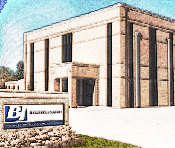 BJ Services, the Houston-based oil and gas field service provider, recently agreed to pay $800,000 to settle charges that it illegally exported certain valves without the requisite licenses from the Bureau of Industry and Security (“BIS”). The BIS investigation, and the subsequent fine, arose from a voluntary disclosure by BJ Services and serves as a potent reminder that a voluntary disclosure to BIS may well result in a substantial civil penalty.
BJ Services, the Houston-based oil and gas field service provider, recently agreed to pay $800,000 to settle charges that it illegally exported certain valves without the requisite licenses from the Bureau of Industry and Security (“BIS”). The BIS investigation, and the subsequent fine, arose from a voluntary disclosure by BJ Services and serves as a potent reminder that a voluntary disclosure to BIS may well result in a substantial civil penalty.
The valves in issue were controlled by ECCN 2B350.g. Under that ECCN, a valve is controlled if the valve has a nominal size of more than 1.0 centimeter and is composed of nickel, titanium, zirconium or other specified metals, alloys or substances. (Nominal size is the size a pipe or valve is sold under; it may vary from actual size.) It can be safely said that this is an ECCN which doesn’t pose significant technical challenges in determining the appropriate classification, which might have been a factor in the hefty fine that BIS insisted on to settle the matter.
Prior to BIS’s April 14, 2005 amendment to the Export Administration Regulations, valves covered by ECCN 2B350 required licenses only for the 34 countries listed on column CB3 of the Country Chart. By the 2005 Amendment, the ECCN increased its controls to CB2 on the Country Chart, meaning that a license would be required to every country other than the 41 members of the Australia Group.
The first 33 counts in the charging letter relate to periods prior to the 2005 amendment and allege that exports to Kuwait, Kazakhstan, Libya, Saudi Arabia, and the U.A.E, all CB3-controlled destinations violate section 764.2(a) of the Export Administration Regulations. The remaining counts 34 to 67 related to exports after the amendment to ECCN 2B350 to such non-Australia Group countries such as Colombia, Mauritania, Mexico, Nigeria and Venezuela. These exports were alleged to violate section 764.2(e) which penalizes knowing export violations.
The allegations of knowing violations under 764.2(e) charged under counts 34 to 67 appear to be separate exports from those charged under counts 1-33, and, thus, don’t appear to be instances of “piling on” multiple charges for the same count in order to increase the possible penalties to be imposed. BIS’s penchant for such piling on appears to have been diminished by the statutory increase in available penalties from $11,000 to $250,000 per violation.
The settlement documents also describe the basis for BIS’s allegations that charges 34-67 represented knowing violations. According to the charging documents, the supplier of the valves had informed BJ Services that they were classified under ECCN 2B350. It is probably this factor that led the BIS to seek such a large fine even after a voluntary disclosure of the exports in question.
UPDATE: My former colleague Dan Fisher-Owens points out in the comments that BJ Services settled charges in 2005 for $142,500 arising from alleged unlicensed exports of ammonium bifluoride and a mixture containing triethanalomine. This was no doubt also a factor considered by BIS in determining settlement amount.
 Permalink
Permalink
Copyright © 2009 Clif Burns. All Rights Reserved.
(No republication, syndication or use permitted without my consent.)

 Posted by
Posted by  Category:
Category: 

